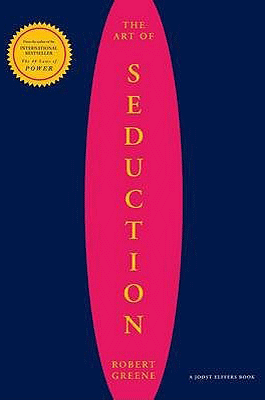Art of Argument Confusion, part two
I had hoped that the current election cycle would supply me with endless examples to illustrate the following ideas taken from Schopenhauer. But the Republicans cannot hang themselves quickly enough and so their discourse seems more pointed inward than outward, and the Democrats are just standing aside and laughing. Please provide your own examples, if you can. (I have noticed that the lawyers out there find this stuff way too rudimentary, considering that it is all standard practice in their world. I ask you to be indulgent. We are less used to these things.)
I continue with Schopenhauer’s examples:
Metaphors and names: When a good argument is not on your side, or the ideas are stacked against you, you use names for things that are loaded with emotions and built-in biases to divert the argument. Of course the Republicans have gotten much mileage with a word like Liberal. But this can be much more subtle. Your opponent speaks of innovation or reform. You refer to it as revolution and drastic change. You are loading the emotional dice and shifting the thought process to their motives: for personal power perhaps, which is what a revolution could imply?
The Ann Coulter non causae ut causae: How could Schopenhauer have been so prescient? I quote from his book: “When your opponent has answered several of your questions without the answers turning out favourable to the conclusion at which you are aiming, advance the desired conclusion–although it does not in the least follow–as though it had been proved, and proclaim it in a tone of triumph. If your opponent is shy or stupid, and you yourself possess a great deal of impudence and long blond hair and a good voice, the trick may easily succeed.”
False inconsistencies: I get this one used on me all the time. It consists of your opponent seeming to find inconsistencies in what you are saying, either by dredging things up from the past (things you wrote long ago), or from people who seemingly belong to your group (let’s say Machiavelli in my case), or even in your present argument. It is easy to create the illusion of inconsistency in anyone’s argument if you are clever enough. And in defending yourself against this charge you look weak and defensive.
Contradiction and contention: In a one-on-one debate, on TV, or even here on the Internet, this tactic consists of vehemently contradicting your opponents. The goal is to rile them, and draw them into exaggerating their original statements, going further than they had wanted to. Now they leave themselves open to some juicy counter-attacks. This can be an active form of deception, a kind of stirring waters to catch fish, or it can actually be a positive ploy. People will often be guarded in a debate, reluctant to show what they really mean. They talk with a subtext. You are getting them to reveal this subtext.
Fog and confusion through the false syllogism: Your opponent makes a proposition. You draw from that a false inference, one that subtly or not so subtly distorts the proposition. This new false proposition on his part can be used for even more absurd inferences, on and on. It is a variety of the distraction tactics discussed in part one. The goal is often to create a lot of fog around the issue, particularly if your own ideas are not so solid. I think we can safely refer, as an example, to what the Republicans have done to the Democrat arguments that we need a phased withdrawal from Iraq. This leads to cut and run, and finally to warmly embracing bin Laden himself.
The appeal to authority rather than reason ploy: Your argument is teetering, you don’t have rationality on your side? Pull in an outside authority to bolster your shaky ideas. This must be carefully chosen. You want one that plays well to your audience, that has the right aura to him or her–Colin Powell, Mahatma Gandhi, Jesus, Vince Lombardi, whatever works. As Seneca says, “Every man prefers belief to the exercise of judgment,” so bring in those authorities with a solid belief team behind them. Use a lot of Latin to designate things. (actum agere.) Actually that doesn’t work so well anymore. Now it is better to use French, or something from popular culture, or incomprehensible jargon, or Derrida and postmodern claptrap, anything that gives an aura of profundity or hipness. Don’t be afraid of twisting the quotes or references to suit your purposes.
The egghead-slander ploy: I prefer to end with the words of the master himself. “If you know that you have no reply to the arguments which your opponent advances, you may, by a fine stroke of irony, declare yourself to be an incompetent judge: ‘What you now say passes my poor powers of comprehension; it may be all very true, but I can’t understand it, and I refrain from any expression of opinion on it.’ In this way you insinuate to the bystanders, with whom you are in good repute, that what your opponent says is nonsense.”
Discuss and comment here







